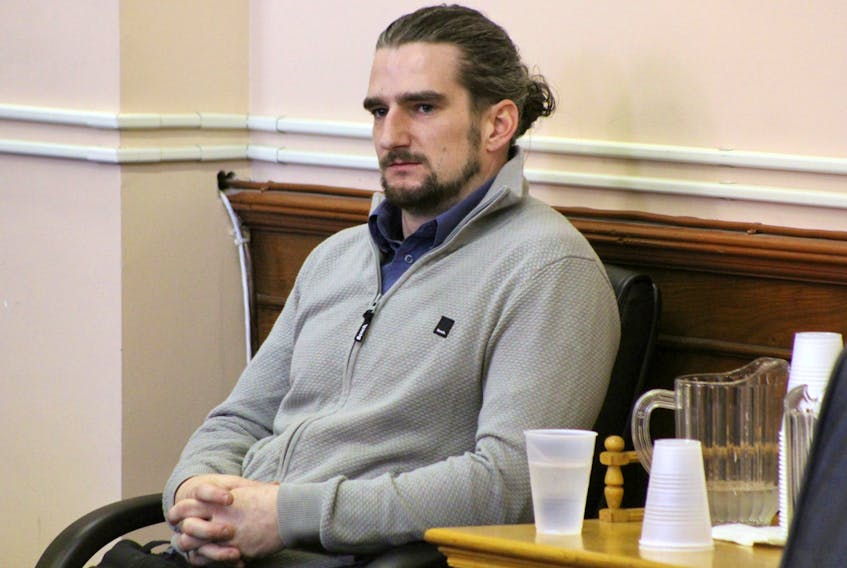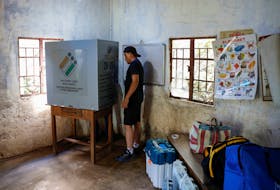Dealing with Anne Norris’s mental health issues as her boyfriend was challenging, but Brian Constantine did what he could until the last straw came around Christmas of 2014.
Norris had been having a few glasses of wine with her family when she called him to come pick her up. He did, and brought her to his place, where she said she wasn’t feeling well and needed to lie down. She went into his bedroom and he figured he’d watch TV.
Three hours later, Norris woke Constantine up, saying she felt better and asking him to come to bed with her, where they had sex.
A few days after that, Norris told him, “The only reason I slept with you the other night is because I knew you were going to rape me in my sleep.”
Constantine had heard similar allegations before, directed at him and others. Norris often said she believed people were breaking into her home and sexually assaulting her while she slept, and had gone to the police numerous times with the allegations, which were never substantiated. At one point, after they broke up, Norris told Constantine that she had been with a new boyfriend and his friend when they had drugged her and sexually assaulted her; he gave her the benefit of the doubt until she told him the boyfriend’s dog was in on the assault as well.
Constantine had met Norris when they were both young teenagers, and they became a couple when she was 19 and he was 20. He remembers walking in Bowring Park with her one day when they bumped into one of her former basketball coaches, who was with a young girl. Norris became visibly upset and seemed to go downhill mental health-wise after that, Constantine noticed. Later, she told him the coach had sexually assaulted her when she was young and she believed he was doing the same to other girls.
Norris went to the police with the allegations against the coach. She also confided in her parents, who believed her, based on incidents they could recall from Norris’s time as a young basketball player. A criminal investigation was started, but was put on hold after Norris’s mental health declined.
Norris was paranoid, Constantine testified Tuesday, often accusing him of cheating on her, and was convinced they both had sexually transmitted diseases, despite clear test results. When she contacted the husbands of two of Constantine’s female co-workers and told them that their wives were sleeping with Constantine, her parents asked her to move home with them.
Norris and Constantine broke up, and Norris was admitted to the Waterford Hospital; when she was released and was doing better, they reconciled before breaking up late in 2014 for good, but they remained friends.
When Constantine saw Norris in the spring of 2016, his heart broke for her, he said. She showed up at his home in the middle of the night, and accused him of breaking into the downtown women’s shelter in which she was staying and raping her in her sleep.
“I don’t know how you did it, but you did it,” he recalls Norris saying. He sat her down and tried to reason with her, telling her he’d never do that to her, and she knew him better than anyone. Eventually she relented, saying, “What is wrong with me? It seemed so real.”
Weeks after that, Norris was arrested and charged with first-degree murder.
Related stories:
The murder trial of Anne Norris — what you need to know
Anne Norris's father testifies at her murder trial
Norris has admitted to socializing with Marcel Reardon, 46, and two others downtown in St. John’s on May 8, 2016. She left in the evening and went to Walmart, where she purchased a hammer, then returned to the group. She and Reardon took a cab to her Brazil Street apartment building in the early morning hours of May 9, where she killed him by striking him repeatedly in the head with a hammer. She moved his body underneath a set of concrete steps at the back of the apartment building and returned downtown in a change of clothes, going to the waterfront and throwing a backpack containing the hammer and other items into the harbour. The backpack was recovered three days later and turned over to police. Norris was arrested May 13 at the same Walmart, where she was trying to obtain hammers, knives and other items.
Dr. Simon Avis, the province’s chief medical examiner, says Reardon’s injuries were among the “most destructive” he has ever seen.
Crown prosecutors Iain Hollett and Jeff Summers rested their case in Newfoundland and Labrador Supreme Court last week, after calling 23 witnesses to the stand to provide evidence they say shows Norris planned and deliberately killed Reardon, and knew exactly what she was doing.
Defence lawyers Rosellen Sullivan and Jerome Kennedy are now making their case for Norris to be found not criminally responsible for Reardon’s death by reason of mental illness.
Constantine testified at Norris’s trial Tuesday morning, the second witness for the defence. Norris’s father, Gary Norris, took the stand on Monday and told a similar story of his daughter’s paranoia and delusions.
Constantine said Norris continued to call him from jail and he went to Clarenville to visit her at the women’s correctional centre at one point. She told him some of the women there hated her.
“She thought everyone hated her,” Constantine told the court.
Tuesday afternoon, Dr. Kellie Ledrew testified, as Norris’s psychiatrist and a member of the Psychosis Intervention and Early Recovery (PIER) team at the Waterford Hospital who treated her from May 2012 to January 2016.
Ledrew said she didn’t diagnose Norris right away, but recognized symptoms of a psychotic disorder. There’s a genetic component to such disorders, Ledrew explained to the jury, but also environmental factors. In Norris’s case, Ledrew said she felt the sexual assault by the coach was the trigger, and Norris’s delusions appeared to match up. Most times delusions are based on some kind of truth, Ledrew said, which would account for the sexual nature of Norris’s delusions.
Ledrew reviewed her treatment notes for the court, providing details of the times she met with Norris or her parents over the course of the four years. Norris was started on medication, which was adjusted as needed, and she did well for a while, though she often said she didn’t want to take them. It was the side effects that bothered her, Ledrew said, including weight gain, fatigue and mental fog.
The Norris family was provided with support as well, and a social worker checked in with them regularly.
“These are illnesses with a tremendous caregiver burden,” Ledrew said.
At times Norris appeared to show insight into her mental health condition. Other times she missed appointments and refused the bloodwork that would allow doctors to check her medication levels. By October 2014, she was no longer taking her medication consistently and was starting to have symptoms again, Ledrew said.
“She was experiencing the paranoia, but she wasn’t delusional,” the psychiatrist told the court. “Things were just below the surface.”
Ledrew’s testimony will continue Wednesday.
Twitter: @tara_bradbury









